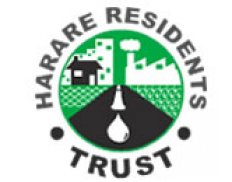The City of Harare has come under fire for introducing three new levies for public lighting, water infrastructure, and emergency services without consulting residents. The decision was part of the city’s 2025 budget and has sparked backlash from the Harare Residents Trust (HRT), which claims the move undermines democratic governance.
The new levies, which target street lighting, water infrastructure, and emergency services, were included in the budget passed by the city council but were not part of the public consultations. According to the HRT, this oversight indicates a lack of transparency and accountability from the council, which they accuse of prioritizing bureaucratic interests over the needs of Harare’s residents.
The first of the three levies is the public lighting levy, intended to fund the rehabilitation of streetlights and tower lights across residential and industrial areas in Harare. The second, a 7.5% charge on water consumption, is reportedly aimed at supporting the development and maintenance of water and sewer infrastructure, although critics argue it is a response to a mounting debt to the China Machinery Engineering Corporation. The third levy, an emergency services charge, is set at US$1 per property and is meant to improve the city’s fire and ambulance services.
By Ruvarashe Gora
“These levies were never discussed during the consultations, and the council’s failure to engage the residents in this process is a clear violation of their responsibility to the ratepayers,” said Precious Shumba, spokesperson for the HRT. “Instead, they introduced these levies as an afterthought, a tactic to cover up their own mismanagement and lack of planning.”
While the intentions behind the levies, such as improving infrastructure and providing better emergency services, are recognized as necessary, the HRT argues that the lack of citizen involvement and the opaque manner in which these levies were introduced is a major issue. They recommend that the levies be ring-fenced for their intended purposes and that greater transparency be implemented in how the funds are managed.
Further controversy arises from the council’s handling of the water infrastructure levy, which the HRT claims is an attempt to cover up the city’s failure to pay off its outstanding debts. The council’s explanation of the levy, which includes discrepancies between the amounts charged to residents and the actual costs of the water infrastructure projects, has only fueled distrust.
The HRT is calling for a comprehensive breakdown of the planned projects and a clear roadmap for how the levies will be utilized. “It’s not just about introducing levies, it’s about doing so in a way that is accountable to the people who fund them,” Precious added. “Without the trust and participation of residents, these levies risk being another avenue for corruption and mismanagement.”
The council has not yet responded to the calls for greater transparency, but the introduction of these levies remains a contentious issue. As Harare’s residents wait for clearer answers, the city council’s ability to manage the levies effectively and fairly will be closely watched.







Comments